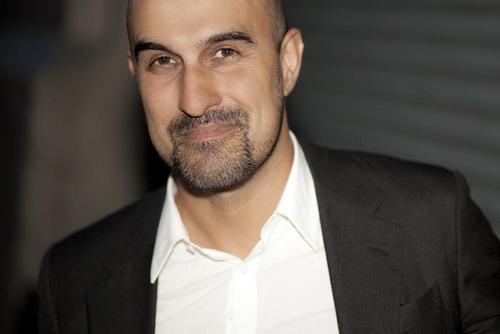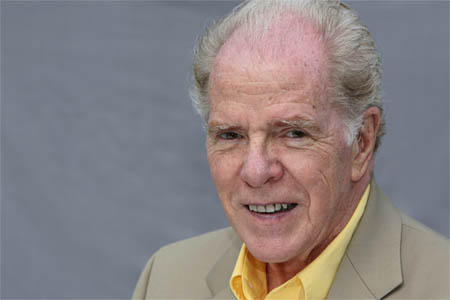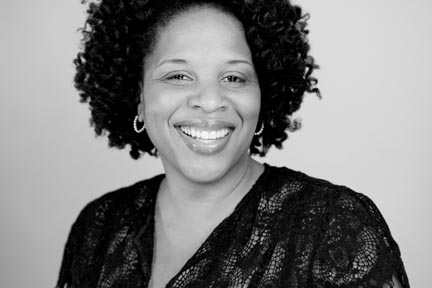Hari Kunzru recently appeared on The Bat Segundo Show #440. He is most recently the author of Gods Without Men. This is the first of a two part conversation. The second part can be listened to on The Bat Segundo Show #441.
Listen: Play in new window | Download
Condition of Mr. Segundo: Wrestling with issues of conversational faith.
Author: Hari Kunzru
Subjects Discussed: Variants of faith in the author/reader covenant, Kunzru’s background, Kierkegaard’s Fear and Trembling, absence and unknowability, F. Scott Fitzgerald, The Celestine Prophecy, liberals who distrust science, how the media portrays women, when New Yorkers are confused with Englishmen, owning a motel in a desert town, attempting to escape the narrow possibilities of life, the appeal of cults, the desire for community, coercive situations in group living, Dawn’s tendency to accuse men of molesting a child, pedophilia, when people are faced with the offensive and the unspeakable, public discussions of children, organizing a book around echoes rather than plot, absent children and spirituality, simulacra within Gods Without Men, STRATFOR, Tom McCarthy’s Remainder, housing compartmentalized illusions within the giant illusion of a novel, the gaps within storytelling, breaking the contract between author and reader, refusing to tie up all ends, growing up in a period of postmodernism, being in a period of overlays, Augmented Reality, war simulations, being trapped in the imagination of the United States, the financial model as mystical tool, complex systems that are only understood through models, high-speed trading engines, machines that disguise their positions in the marketplace, the 2010 Flash Crash, comparisons between a day trader and a novelist, the predatory nature of collecting stories from other people, Theron Wayne Johnson, hearing a grisly story from a man in a bar, the ethics of making a story sufficiently transformative from its original source, conducting research for My Revolutions, people who use violence in support of their politics, the moral difficulties of formal interviews used for fiction, recent anti-gentrification movements in London, John Barker and The Angry Brigade, Bill Ayers, the Barker/Ayers ICA discussion, the inevitability of copying and pasting in 21st century art, using living people for fiction, impinging on public personae, Robert Coover’s The Public Burning, Adam Johnson, fictional projections of Nixon, James Frey and Oprah, the authenticity of memoir, the entanglement of novels and nonfiction, living in a Googleable age, the novel as a link dump, Kunzru’s Twitter presence, and hyperlink fiction.
EXCERPT FROM SHOW:
Correspondent: I wanted to first of all start off on a question of faith — predictably enough. A writer has a lot of faith when he is putting together a novel. A reader places her hard-earned shekels over the counter and has faith in the writer to tell a story. The characters in this novel, Gods Without Men — they are both faithful and faithless to ideologies, to their families, to their relationships. So faith is a very loaded concept. And I’m curious why any novelist would tackle something that is so tricky, so duplicitous, so hypocritical, so difficult to pin down. I mean, how do you deal with this? Because even though this novel does not always answer all questions, you are dealing with something that you have to fit into narrative. So maybe we can start here.
Kunzru: Yeah. I suppose my own relationship to faith is a complex one. I’ve got an Indian father from a Hindu background. Many people on both sides of my family are actively practicing religious. My mother’s background is Protestant English. My parents decided quite sensibly to bring me up without any religious — not to bring me up with either of those two traditions. So I was left to find my own way. And I’ve always had for many reasons a kind of inclination to see things one way and then see things another way. But over the years, I’ve developed a sense that I don’t believe in god. I’m an atheist. However, I don’t think that position — the idea that you don’t believe in some kind of personalized creator to whom you owe an ethical duty not to sleep with the wrong people. That doesn’t take any of the big questions off the table about human agency, about ethics, about meaning and value. And I’ve always been very fascinated by people of faith. Because in some ways, I find them very scary. People with a very strong faith have stopped asking questions at a certain point. There’s a certain point where they have made this leap. This extraordinary leap into the world of faith. And it’s something I felt that I understood poorly as well. The only book that’s ever really made me really kind of feel what it must be like to have a powerful religious faith is Fear and Trembling, the Kierkegaard book where he talks about the extraordinary moment where Abraham has sacrificed Isaac and he’s prepared to do this because his faith in God’s word is true. And that kind of encapsulates it. It’s a terrifying act. It’s a horrific act. And it, in a way, echoes with all these incredibly violent things that have happened in the name of religion. But at the same time, there’s a kind of horror to it. There’s a sublimity to it. There’s an absolute abandonment of the human.
And this novel is a way, is my attempt to talk about our relationship with the unknowable and with the unknown. And it’s about all sorts of people who have many different ways of conceptualizing this and many different sorts of solutions that they’ve come up with. But the essential question is the question of absence and unknowability. At a certain point, human comprehension ends. And whether you believe that everything is essentially knowable — like Jaz, the husband in this. The husband and the wife who are at the center of the book. Jaz is a rational man. He is trained as a scientist. His sense of the world is if you think hard enough and you have the right concept and you test and you hypothesize, then the world will open up its secrets. And his wife goes absolutely in the other way. She withdraws into a kind of mysticism. And other characters in the novel range from various people who have profound faith — like a Franciscan friar and a lapsed Mormon coalminer to people who have a much more complicated relationship with it and a skeptical relationship with it.
Correspondent: But I would argue that this concern for faith — both sides of the fence — almost mimicks Fitzgerald’s idea of the first-class intellectual being able to hold two opposing ideas in his mind. I mean, with Jaz and Lisa, it’s very interesting, those sections in particular. Because the prose itself is both general but specific enough for us to get an idea. It’s almost as if the prose needs to mimic their especial judgment towards the world, towards each other, and the like. And I’m curious how you developed this at the prose level. Because that was one of the things that really impressed me about your book. What struggles were there to get that balance? I’m just curious.
Kunzru: You mean, in terms of the voice for the different characters?
Correspondent: Yes. Exactly. Especially for Jaz and Lisa.
Kunzru: You know, it’s one of these things that emerges through the doing. I don’t think it was a very programmatic thing. I mean, those characters emerged as quite defined opposites to each other in their reaction to what happens to their missing child. I mean, I’m interested in the business of faith in the financial markets, faith in credit and the extraordinary kind of high wire act that is the global financial system, which depends on everybody believing that this money exists. And yet placing a kind of Mr. Science in this world of high finance was an interesting one. Out of those decisions, his way of talking and his way of understanding the world emerged quite naturally. Once you know that somebody has a higher degree in physics, you know that they’re unlikely to be basic in their worldview on The Celestine Prophecy. And Lisa’s character comes out of something I’ve observed from a lot of liberals with humanities backgrounds. Here, in London, everywhere. That actually, people aren’t very scientifically educated very often and actually have a kind of gut hostility to the procedures of science. Because they feel that it’s kind of closing down the space of wonder in the world. And that leads quite a lot of people — I’m always quite surprised by people who are very skeptical and argumentative will often have this blind spot where it comes to — especially things to do with health, in particular. Like people get into homeopathy and various other things that I would personally consider quackery. Because partly they wish to believe certain things about the world that have to do with wonder and ineffability and unknowability and often beauty and a kind of non-utiliatarian way of seeing the world. It’s all kind of very valid reasons to want to protect a sacred space from an intrusion by the methodology of science. But it can lead people into some very strange, anti-rational positions. And often those two ways of being can be very buried in people. Because we don’t tend to have these conversations. It’s off the list of what’s polite in a party chat.
Correspondent: Well, be as impolite as you like here. (laughs)
Kunzru: (laughs) Well, we can talk about it. But having a couple who basically have a great deal in common, who love each other — they genuinely love each other, these two. The kind of gradual exposure of the real contours of their ways of dealing with the unknown is what causes this terrible tension in their relationship. And that seemed to me to speak to quite an interesting fault line that runs across a lot of contemporary culture.
Correspondent: I’m wondering if Lisa, at least in relation to the question of faith, was almost sort of a spillover character for what you could not do with Dawn, who I’m also really curious about. I mean, it’s interesting that the women tend to gravitate towards issues of blind faith, often destructive faith. I mean, with Lisa, it’s interesting too because you have all these media incursions into her life. So it’s almost like some part of the world wishes to punish her for her beliefs.
Kunzru: I’m very interested in the way that media presents women. Especially mothers. The censoriousness that attaches itself to women’s choices around motherhood and around the work. I mean, in this novel, their child disappears. They become the object of this media witch hunt. And everybody zeroes in on “Is this a bad mother?” — especially “Is this a cold mother?” She fails to emote in a way that the media folk think is appropriate. And hence she’s immediately suspect. Because it’s a novel and you can get inside somebody’s inner life, we know very well that she’s absolutely destroyed by this and she’s an emotional person. She’s not some kind of psychopath who fails to have correct emotion or a response. However, the appearance sort of drifts further and further from reality. Of course, they’re also New Yorkers lost out West. Everyone hates New Yorkers in the rest of the country, as far as I can see. I now get outed as a New Yorker by other Americans in other parts. The English accent gets bracketed into some sort of New Yorker thing. So I get the prejudice as well. (laughs)
Correspondent: Those wild and crazy liberals with their British accents.
Kunzru: Yeah. Exactly.
Correspondent: You’re drinking a cappuccino right now! So there you go.
Kunzru: Drinking a cappuccino with a British accents. That’s exactly what everyone thinks happens in Chelsea.
Correspondent: You are America’s nightmare! (laughs)
Kunzru: I am. Rick Santorum, right now, is burning an effigy of me in a basement somewhere in Idaho.
The Bat Segundo Show #440: Hari Kunzru, Part One (Download MP3)




